Collaborative Teaching in Inclusive Education

Source: villamaria
Collaborative Teaching in Inclusive Education
Collaborative teaching education is a significant educational movement, uniting various teaching styles and abilities to foster an environment where all students flourish. It’s a harmonious blend of distinct teaching experiences and strengths, promoting comprehensive learning for students.
Vidhyanidhi Education Society (VES) acknowledges this crucial approach with its Special Education Teaching Course. As a Government-registered Teacher Training Institute, VES focuses on preparing educators for implementing effective collaborative teaching in inclusive classrooms. We remain steadfast in our dedication to inclusive education, giving you the tools you need to make a constructive contribution to this transforming process.
- Concept of Collaborative Teaching: Collaborative teaching, often referred to as co-teaching, is two or more professionals sharing the planning, instruction, and evaluation of students in the same classroom. To ensure that all students’ needs are fulfilled in inclusive environments, general and special education teachers often collaborate.
- Importance of Collaboration: Collaboration is important because it enables educators to pool their knowledge and talents, creating a richer and more engaging learning environment. It enables instructors to meet the different requirements and learning preferences of their students.
- Collaboration Models: There are several collaboration models like parallel teaching, station teaching, and team teaching. Each has its benefits and can be chosen based on the classroom dynamics and student needs.
- Promoting Individual Strengths: In a collaborative teaching environment, educators can focus on their areas of expertise. For instance, a special education teacher might concentrate on modifying lesson plans for students with special needs, while the general education teacher delivers the lesson to the larger group.
- Improved Student-Teacher Ratio: Collaborative teaching effectively reduces the student-teacher ratio, allowing more individual attention for students. This is particularly beneficial in an inclusive setting where children have varied learning needs.
- Promoting Inclusion: Collaborative teaching supports the inclusion model by ensuring that students with special needs have access to the general education curriculum and are included in all class activities.
- Professional Development: Collaborative teaching is a great opportunity for professional growth. Teachers may share knowledge, adopt new teaching methods, and learn from one another.
- Challenges of Collaboration: Collaboration obstacles include organising schedules, harmonising teaching philosophies, and sharing classroom duties, despite the fact that collaborative teaching offers numerous advantages. However, these difficulties may be solved with open communication and a common goal.
- Role of Training: Proper training is crucial for successful collaboration. Teachers should be trained in collaboration techniques, conflict resolution, and inclusive teaching strategies. Here’s where institutions like Vidhyanidhi Education Society (VES) play a significant role, offering comprehensive courses in inclusive education.
- Results of Collaborative Teaching: Collaborative teaching in inclusive education improves students’ academic achievement, self-esteem, and social skills, among other benefits. Additionally, it promotes a feeling of belonging and inclusion in the classroom.
- Flexibility in Instruction: Collaborative teaching offers the flexibility to differentiate instruction effectively. The presence of multiple educators allows for grouping strategies that cater to diverse learners, supporting those who may need additional assistance or enrichment activities.
- Shared Responsibility: The responsibility of teaching, planning, and assessing doesn’t fall on one teacher alone. Instead, it’s a shared effort that reduces the workload, resulting in less burnout and higher job satisfaction.
- Fostering a Cooperative Spirit: Collaborative teaching encourages a cooperative spirit among educators, which often reflects onto the students. It teaches the students the value of teamwork, cooperation, and respect for different abilities.
- Enhanced Communication: Regular interaction between teachers necessitates clear communication. This in turn helps with setting clear expectations, addressing any emerging issues promptly, and ensuring a well-coordinated teaching approach.
- Parental Involvement: In a collaborative teaching setting, parents can also be better involved. Having two or more teachers can enhance communication between school and home, ensuring that parents are aware of their child’s progress and can support their learning at home.
- Promotion of Peer Learning: In an inclusive classroom, peer learning is promoted by collaborative teaching. Students learn to understand, respect and value the differences amongst themselves, fostering a healthy learning environment.
- Better Assessment Practices: Co-teachers can share the responsibility of assessing students. This allows for more comprehensive feedback, as each teacher may observe different aspects of a student’s performance.
- Role of School Leadership: The success of a collaborative teaching model also heavily depends on the support of school administrators. School leadership must foster a supportive environment and provide necessary resources and professional development opportunities.
- Community Building: Collaborative teaching extends beyond the walls of the classroom, promoting an inclusive and collaborative school community. It brings together educators, parents, and students, working towards the shared goal of inclusive education.
- Celebrating Diversity: Collaborative teaching, at its core, celebrates diversity. By working together, teachers model respect for individual differences and highlight the value of every student, thereby promoting an inclusive and accepting school culture.
The role of collaborative teaching in inclusive education is indisputable, but it’s also a complex and demanding task that requires the right skills and mindset. At Vidhyanidhi Education Society, we can equip you with the knowledge and tools you need to successfully navigate and thrive in this important role. Our Special Education Teaching Course is designed to provide practical, in-depth training that will empower you to make a real difference in inclusive classrooms. Don’t miss the opportunity to be part of the progressive change in education – join us at VES and be the change-maker in a child’s life.

Source: dta0yqvfnusiq
Table of Content
- Careers in Special Education
- Online Courses on Special Education
- How Long Is Diploma In Special Education?
- Shadow Teacher Qualifications
- Teacher for Special Needs Salary
- Diploma in Special Education Distance Mode
- Skills of a Special Education Teacher Assistant
- Why Is Transition Planning Important In Special Education?
- What Other Jobs Can Special Education Teachers Do?
- What Function Does A Special Education Teacher Perform?
- Learning Difficulties Training
Careers in Special Education
After graduating from a Special Education Needs Course, a multitude of exciting and fulfilling job prospects open up. You’ll have opportunities to engage with diverse groups in a variety of settings.
Here are some hot job opportunities:
Special Education Instructor
This role involves identifying children with special needs early on and devising individualized teaching plans and lessons for them. To assist the child’s learning process, you will collaborate closely with teachers, parents, school personnel, and other experts.
Special education tutoring at home
As a home tutor, you’ll work with kids one-on-one to help them improve their academic and social abilities.
Collaborator with Medical Professionals
As a special educator, you’ll team up with healthcare professionals like physiotherapists, psychologists, and speech therapists to address a child’s unique needs and encourage holistic growth.
Special Education Consultant
In this role, you’d cooperate with classroom teachers to modify the standard curriculum and tailor lessons. You would also plan and deliver parent-training programs and provide academic interventions.
Special Educator in a Rehabilitation Center
Here, your job would involve helping children grasp fundamental concepts and focus on conceptual learning. You’ll collaborate closely with parents, school teachers, and other support staff, using innovative teaching techniques to improve the required skills.
Special Education Center Founder
You could start your own center with the goal of helping children with special needs achieve independence by minimizing the effects of developmental delays.
Special Educator in a Non-Profit
Here, you would evaluate a child’s abilities and formulate effective teaching plans.
Support Teacher
In this role, you’d promote inclusive education by offering personalized teaching and guidance to children with special needs, either individually, in small groups, or within a class. As a support teacher, you would assist the regular classroom teacher with students with special needs.
For enrolment details call VES at 9321024137 / 9869866277.
For Downloading the brochure click here
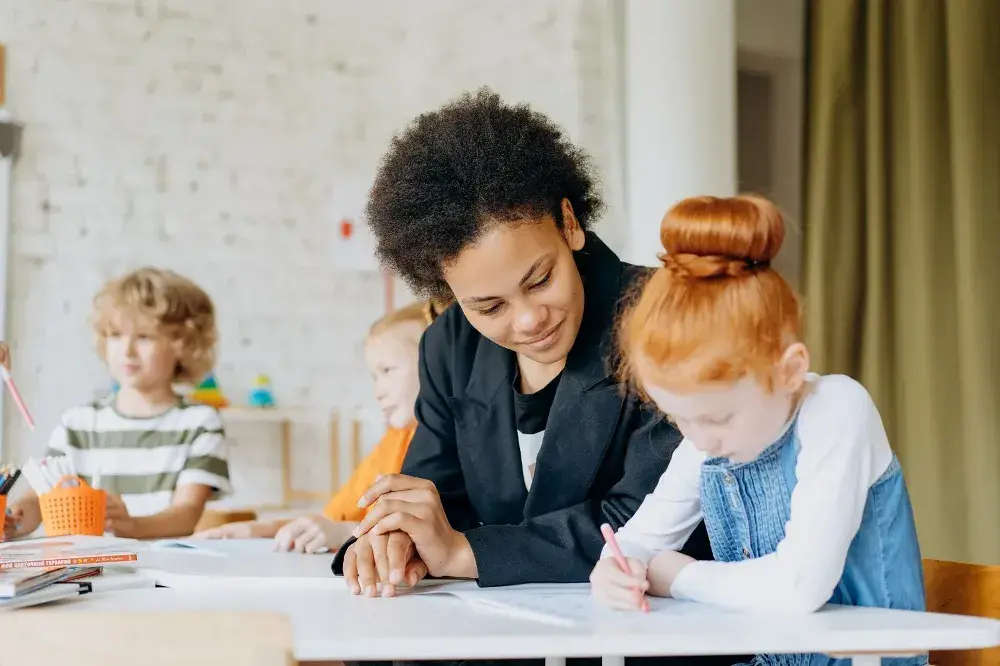
Source: wonderschool
Online Courses on Special Education
Don’t let life’s demands deter your educational ambitions. Vidhyanidhi Education Society presents online diplomas in special education, designed for your convenience.
Key features include:
- Individual Learning Pace: Learn at your own speed with our adaptable Online Mode.
- International Certification: Launch your teaching career globally with our online Special Education Course.
- Unlabeled Mode of Instruction: Our Certificate doesn’t indicate “ONLINE”, upholding the value of a traditional diploma.
- Affordable Quality Education: We make quality education feasible for all.
- Saves Time and Money: Eliminate commuting, saving you money and freeing up your time for more essential activities.
- Direct-to-Home Delivery: We dispatch all necessary materials and the certificate directly to your residence.
- Quick Completion Option: Our fast-track option facilitates early course completion.
How Long Is Diploma In Special Education?
Speed up your learning journey at Vidhyanidhi Education Society with our one-year Special Education Diploma, or opt for our FAST TRACK alternative to finish even faster.
Shadow Teacher Qualifications
The potential candidate must demonstrate a sound educational foundation by completing Xth grade.
Teacher for Special Needs Salary
The escalating popularity of Inclusive Education is creating a burgeoning need for Special Education Teachers. Freshers in this realm can anticipate a salary that oscillates between 1 and 2.5 lac. The acquisition of a Special Education diploma from a state-registered institute can increase your job prospects, often tied to appealing compensation. The job’s fiscal benefits are further elevated through the provision of incentives and promotions.
For enrolment details call VES at 9321024137 / 9869866277.
For Downloading the brochure click here
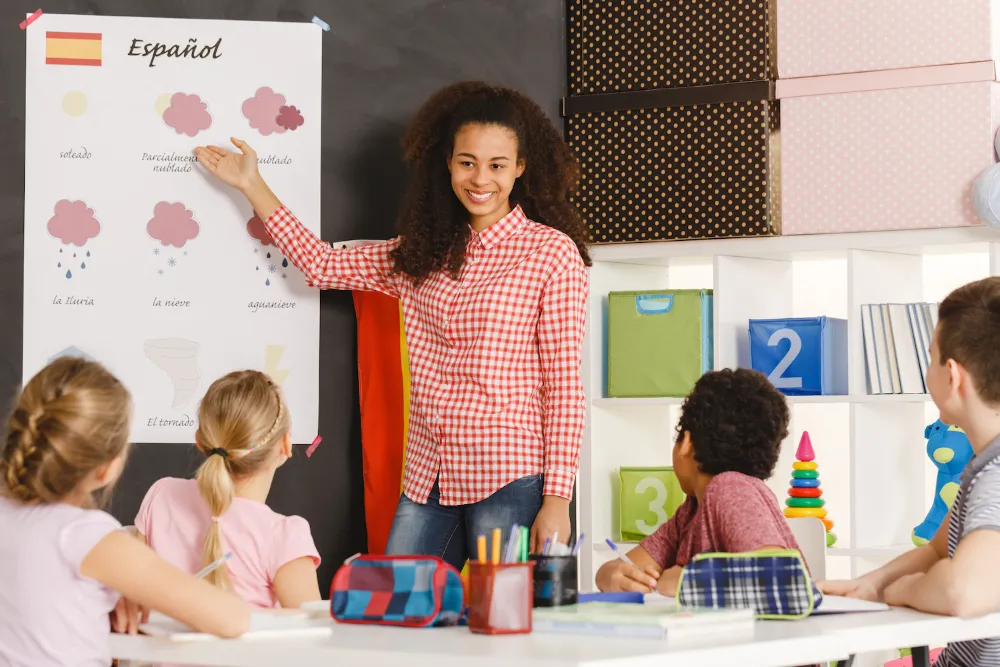
Source: ksspreschool
Diploma in Special Education Distance Mode
Step into the realm of Special Education and unlock a world of possibilities for a thriving career, regardless of time or location limitations, through our groundbreaking Diploma in Special Education Distance Learning course.
Embrace a flexible learning approach that adapts to your schedule and circumstances.
Discover the extraordinary features presented by Vidhyanidhi Education Society’s Diploma in Special Education Distance Learning course, designed to revolutionize your educational journey:
- Experience the convenience of having study materials delivered to your doorstep, ensuring an uninterrupted learning experience.
- Earn a globally recognized certification, expanding your career prospects on an international scale.
- Enjoy the peace of mind provided by our 100% Employment Assistance Guarantee, guaranteeing support in your job search.
- Enhance your practical expertise through an internship letter included in the course, equipping you with real-world experience.
Skills of a Special Education Teacher Assistant
A Special Education Teacher Assistant plays a crucial role in supporting the education and development of students with special needs.
Here are some essential skills and qualities that are beneficial for a Special Education Teacher Assistant:
Patience
Special education students may require extra time and support to understand and complete tasks. Patience is key in working with students who may have learning or behavioral challenges.
Empathy and Compassion
Special education students often face unique challenges, and it’s important for a Teacher Assistant to understand and empathize with their struggles. Showing compassion helps build trust and rapport with students.
Adaptability
Every student in special education has unique needs and learning styles. Teacher assistants need to be adaptive and flexible in order to modify their teaching techniques, methods, and materials according to the needs of certain pupils.
Communication Skills
Collaboration with teachers, parents, and other professionals engaged in the children’ education requires effective communication. Teacher Assistants need to be able to convey information clearly and listen attentively to others’ perspectives.
Organization
Special Education Teacher Assistants often work with multiple students, each with their own individualized education plans (IEPs) and materials. Being organized helps in managing schedules, lesson plans, and student progress records efficiently.
Problem-Solving
Special education students may encounter obstacles and challenges in their learning. Teacher Assistants should be skilled in problem-solving, finding alternative approaches, and providing appropriate support to help students overcome difficulties.
Behavior Management
Students with special needs may exhibit challenging behaviors. Teacher Assistants should have strategies and techniques to manage behavior effectively, promoting a positive and inclusive classroom environment.
Knowledge of Special Education
A solid understanding of special education practices, methodologies, and laws is crucial. Teacher Assistants should be familiar with various disabilities, intervention techniques, and accommodations/modifications to support students’ learning.
Collaboration
Special Education Teacher Assistants often work closely with the classroom teacher and other professionals, such as therapists or psychologists. Collaborating effectively with the team ensures coordinated support and consistency in students’ education.
Creativity
Special education students may require alternative approaches to engage with and understand the curriculum. Being creative in adapting materials, activities, and teaching methods can help make learning more accessible and enjoyable for students.
Keep in mind that these abilities may be improved via instruction, practise, and continued professional growth. A Special Education Teacher Assistant must approach their profession with devotion, patience, and a willingness to fulfilling the specific requirements of each kid since every student is different.
For enrolment details call VES at 9321024137 / 9869866277.
For Downloading the brochure click here
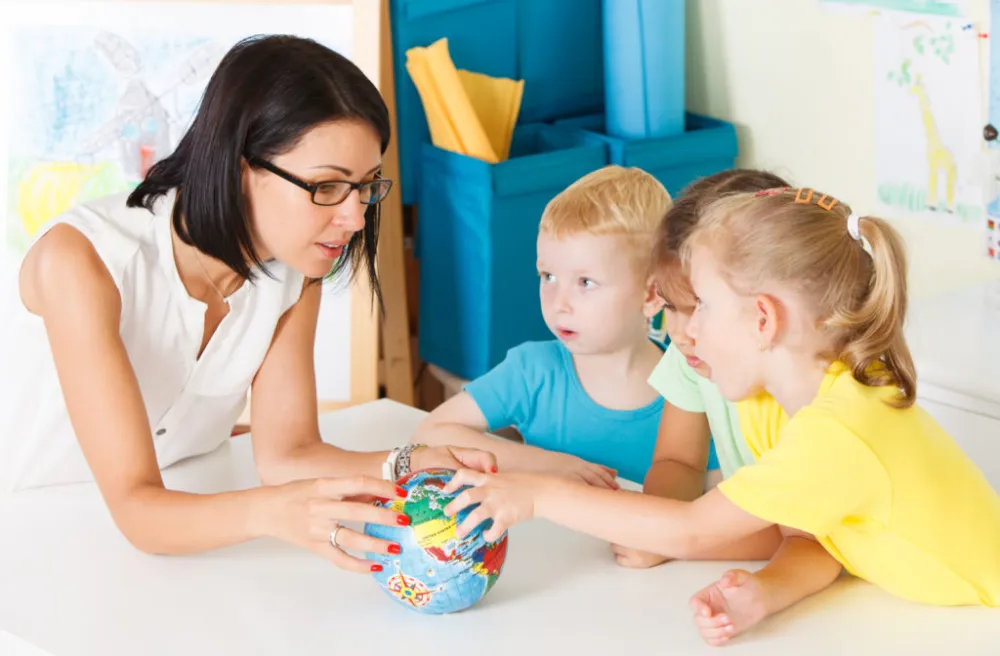
Source: mosaicmontessori
Why Is Transition Planning Important In Special Education?
Transition planning is crucial in special education because it helps students with disabilities prepare for their post-secondary lives and successfully transition from school to adulthood.
Here are some reasons why transition planning is important:
Individualized support
Transition planning focuses on the unique needs, abilities, and goals of each student with disabilities. It ensures that their individual strengths, challenges, and interests are considered when planning for their future.
Life skill development
Transition planning helps students acquire essential life skills necessary for independent living, employment, and community engagement. It could include imparting knowledge on how to make decisions, solve problems, communicate effectively, and handle one’s finances.
Outcomes that are successful beyond school
Special education’s ultimate purpose is to prepare pupils for successful lives after school. Student exploration and identification of post-secondary educational possibilities, career chances, job opportunities, and independent living arrangements that match their interests and talents are assisted through transition planning.
Collaborative approach
Transition planning involves collaboration among various stakeholders, including students, parents/guardians, educators, special education professionals, vocational rehabilitation counselors, and community service providers. This collaborative approach ensures that all relevant perspectives are considered, and appropriate supports and services are put in place.
Smooth transitions
Transition planning facilitates a smooth and seamless transition from the school environment to adult life. It helps students navigate the challenges and adjustments they may face during this period of change and ensures continuity of services and supports.
Legal requirement
By adhering to these legal standards, it is ensured that students get the assistance they need to fulfil their post-secondary objectives.
Students with disabilities who participate in transition planning are more likely to enjoy meaningful and rewarding lives as they transition into adulthood and pursue possibilities for independent living, work, and education that are in line with their skills and objectives.
What Other Jobs Can Special Education Teachers Do?
Teachers in special education are highly qualified professionals with a wide range of skills that may be used in a number of other professions.
Here are some potential examples:
Education consultant:
They may provide schools, organisations, or parents with professional advice and direction on how to help kids with special needs.
Educational Diagnostician:
These professionals test students for potential learning disabilities and collaborate with educators and parents to create a learning plan.
Therapist/Counselor:
Special education teachers have the necessary skills to transition into roles such as speech-language pathologist, occupational therapist, or counselor, though these positions often require additional training or certification.
Curriculum Developer:
Their experience and knowledge about various learning needs and teaching strategies make them good candidates for designing inclusive curriculums for schools or educational software companies.
Educational Coordinator:
They can help coordinate services for students with disabilities in schools or at non-profit organizations.
Rehabilitation Counselor:
They can help individuals with physical, mental, developmental, or emotional disabilities live independently.
Education Administrator:
With experience, special education teachers can move into administrative roles such as principal or director of special education.
Instructional Coordinator:
They can work to develop teaching material and coordinate its implementation with teachers and principals.
Remember, while some of these roles can be transitioned into directly, others may require additional training, education, or certification.
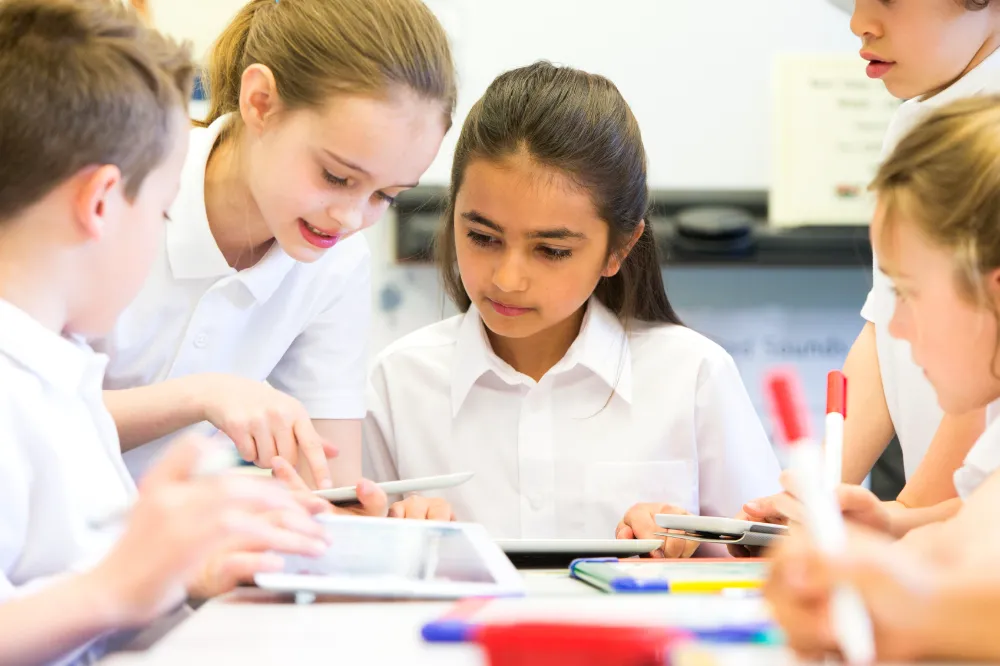
Source: kidsdiscover
What Function Does A Special Education Teacher Perform?
A special education teacher’s job is to provide pupils with disabilities or special needs specialized teaching and assistance. With a variety of academic, emotional, physical, or cognitive challenges, these instructors work with pupils to make sure they get a suitable education that is catered to their specific need. A special education teacher’s main duties and obligations are as follows:
The creation of an individual education plan (IEP) for a student involves collaboration between special education instructors and other experts including parents, administrators, and therapists. These plans provide precise learning objectives, changes, and accommodations to accommodate the individual requirements of the learner.
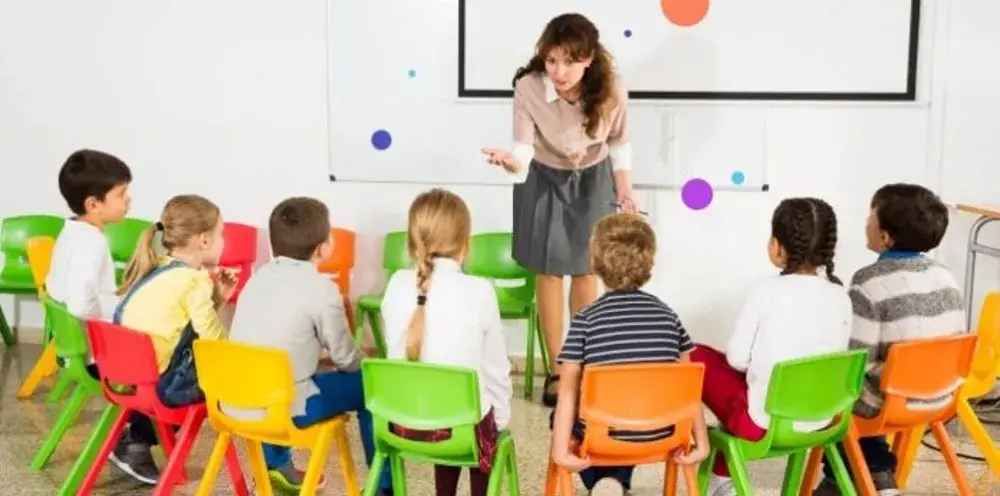
Source: splashlearn
Instructional Planning
Special education teachers create and implement instructional strategies and lesson plans that align with students’ IEPs. They adapt and modify teaching methods to address individual learning styles and abilities.
Differentiated Instruction
Special education teachers employ various instructional techniques and materials to meet the diverse needs of their students. They may use multisensory approaches, visual aids, assistive technology, and specialized curricula to facilitate learning and promote academic progress.
Classroom Management
These teachers establish a positive and inclusive learning environment that fosters engagement and supports students with behavioral challenges. They implement behavior management strategies and provide social-emotional support to help students develop appropriate behaviors and social skills.
Assessment and Progress Monitoring
Special education teachers assess students’ progress regularly using a variety of assessment tools. They utilise this data to track student development, modify their lesson, and assess whether or not the students are achieving their learning goals.
Collaboration and communication
To coordinate services and provide a unified approach to kids’ education, special education instructors collaborate closely with other educators, therapists, support personnel, and parents. They work together to create and put into practice solutions that support students’ achievement in both the academic and social spheres.
Continuous Professional Development
Special education teachers engage in ongoing professional development to stay updated on best practices, research, and new techniques in special education. To more effectively help their pupils, they work to improve their knowledge and abilities.
A special education teacher’s overall responsibilities include fostering an inclusive and encouraging learning environment, promoting academic progress, and enabling students with disabilities to realize their full potential.
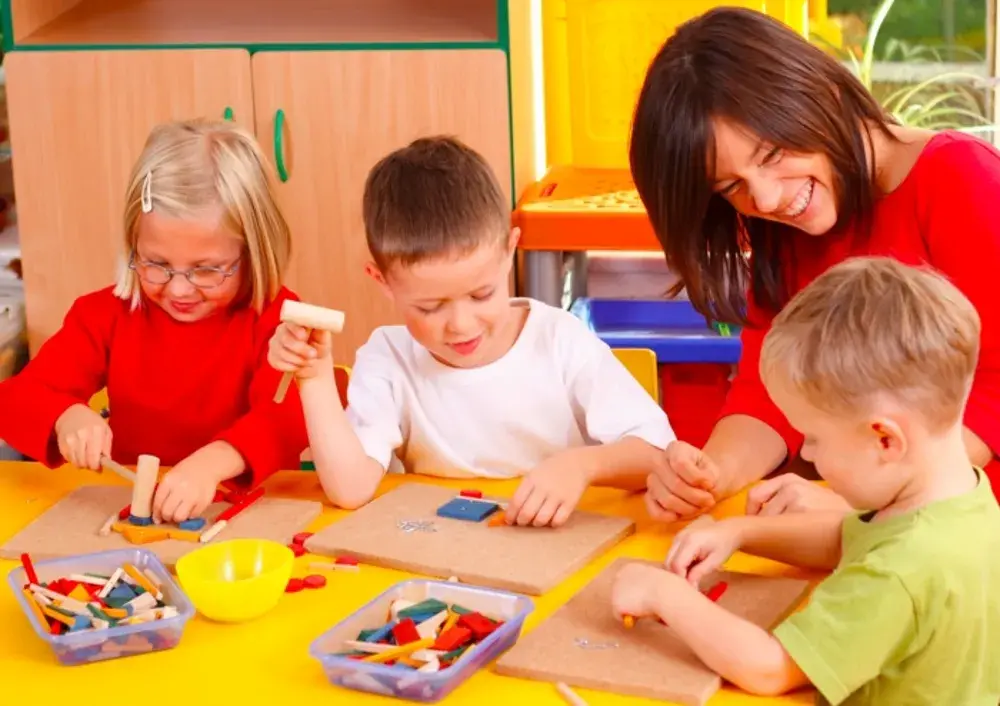
Source: ser4kids
Learning Difficulties Training
Vidhyanidhi Education Society (VES) introduces a comprehensive curriculum focusing on Learning Difficulties Training. As an esteemed institution, VES brings together research-based pedagogical strategies and inclusive teaching methods, targeting specific learning difficulties to empower educators in the 21st century.
This curriculum emphasizes the understanding of:
- The nature and causes of learning difficulties
- Identification and assessment of learning difficulties
- Teaching strategies and interventions for learning difficulties
- Individual Education Plans (IEPs) and learning support
- The role of parents and professionals in managing learning difficulties
- Legal and ethical considerations in the field of learning difficulties.
Join VES to navigate learning difficulties with expertise and compassion.
Call here at 9321024137 / 9869866277 for a better understanding of the course.
For Downloading the brochure Click Here
FAQ
What are the needs of special education?
The needs of special education include individualized instruction, specialized resources, and targeted support to help students with disabilities thrive.
What is the role of special educator?
The role of a special educator is to adapt curricula, employ varied teaching methods, and provide individualized support to students with disabilities.
How to become a teacher for disabled students?
To become a teacher for disabled students, one often pursues specialized training and degree/certification. Vidhyanidhi Education Society offers an SEN Course.
What are the needs of special education?
The needs of special education include individualized instruction, specialized resources, and targeted support to help students with disabilities thrive.
What is the role of special educator?
The role of a special educator is to adapt curricula, employ varied teaching methods, and provide individualized support to students with disabilities.
How to become a teacher for disabled students?
To become a teacher for disabled students, one often pursues specialized training and degree/certification. Vidhyanidhi Education Society offers an SEN Course.




